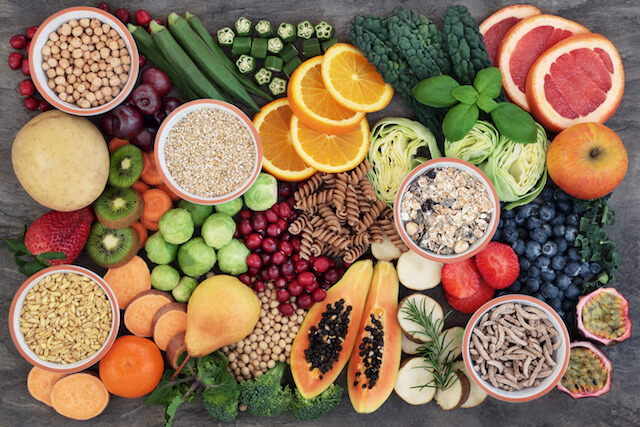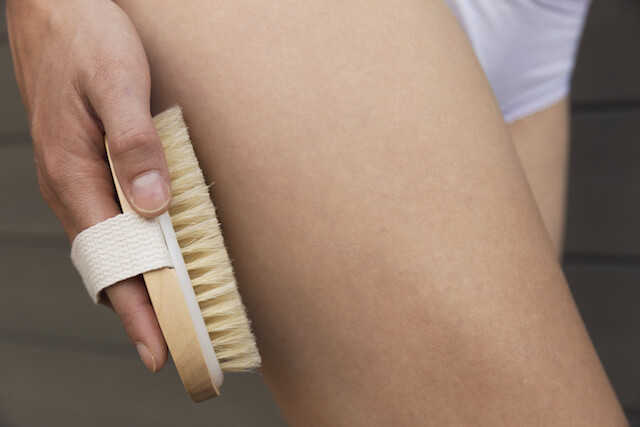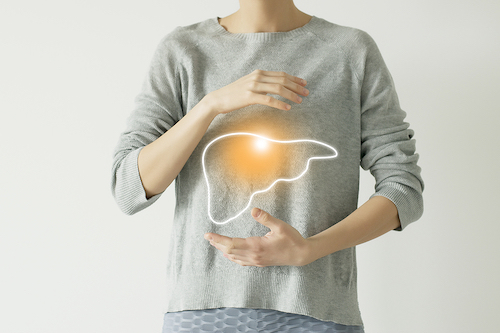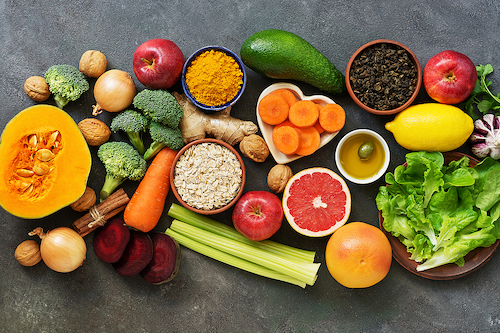Many people don’t realize how prevalent parasites really are. The truth is, if you breathe air, you could have a parasite. You can also get parasites from insect bites, swimming in natural water sources, eating unwashed produce, consuming undercooked meats, or even from public restrooms. If you travel frequently (especially internationally), eat sushi, or if you have pets, the chances you have a parasite are even greater. Read on to learn some of the signs you may need a parasite cleanse.
What are common parasites in humans?
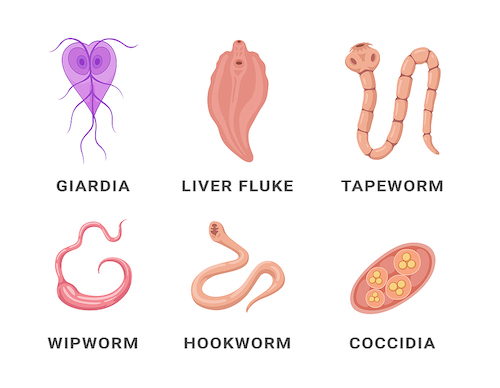
Intestinal parasites are organisms that live in the human digestive tract and cause damage to their host. They not only consume nutrients from the foods you eat, but they can also cause physical damage to the lining of the intestines. There are literally hundreds of types of parasites common to humans. Some are microscopic, while others can be large enough to be seen with the naked eye.
The most common parasites are either microscopic protozoa or worms, like tapeworms, roundworms, hookworms, and flatworms. Symptoms of parasitic infections vary depending on the type of parasite you have. Below are some common symptoms of parasites that may help you discover the culprit.
10 Signs You Need a Parasite Cleanse
1. Unexplained Digestive issues
Many parasites, especially worms, can cause abdominal cramping, diarrhea, constipation, nausea, and bloating. Left untreated, a parasitic infection can even lead to leaky gut, bacterial overgrowth (SIBO), and dysbiosis.
2. Low Iron / Anemia
Tiny parasitic bloodsuckers may bite into the lining of your gut and even attach themselves. Over time, they can deplete red blood cells, leading to anemia.
3. Fatigue
As parasites deplete nutrients before they can be absorbed, you will experience unusual exhaustion. It is not uncommon for a person with a parasitic infection to become malnourished from this lack of nutrients.

4. Muscle and Joint Pain or Body Aches
Painful or aching muscles or joints can be symptoms of an intestinal parasite. That’s because intestinal parasites migrate to the joints via the bloodstream. Once there, they excrete toxins that cause inflammation that may resemble flu-like aches and pains.
5. Bruxism (Teeth Grinding)
Just as parasites can affect the joints, they can cause grinding, gnashing, or clenching the teeth, especially at night. This results from parasitic waste toxins that can bring on anxiety and restlessness.
6. Changes in Appetite
You’ve heard about a pregnant mother eating for two. But have you ever thought about eating for thousands? As intestinal parasites rob your body of nutrients, you may not feel full after a meal or experience unusual hunger. On the other hand, some types of parasites cause bloating and a sensation of fullness, diminishing your appetite.
7. Insomnia or Restless Sleep
Parasites and their toxins can invade the central nervous system. There, they disrupt normal production and function of important neurotransmitters. This can disrupt your circadian rhythm and cause sleep disturbances.
8. Skin Irritations
The waste produced by parasites can lead to rashes, hives, eczema, itching, and even acne. Many parasites reside on the surface of the skin. Others secrete toxins that can trigger immune reactions and inflammation on the skin.
9. Sugar Cravings
Parasites need a steady supply of sugar to survive. In order to get the sugar they crave, they interfere with our neurotransmitters and hijack our serotonin, which controls cravings and appetite. This triggers cravings for sugar and carbs in the host.
10. Brain Fog or Poor Memory
Parasites release toxins through their waste and when they die off. These toxins can affect the brain and cause memory loss and forgetfulness, brain fog, decreased focus, headaches, depression, and anxiety.
So you think you have a parasite. . .
If you think you may need a parasite cleanse, I’ve got you. Come check out this post to learn about my favorite natural parasite cleanse to rid your body of unwanted freeloaders.
Want to learn more? Check out this episode of The Lindsey Elmore Show with Jaban Moore to learn about the main types of parasites that cause infections in humans, as well as symptoms and treatments for parasitic infections.




